


SOUTHERN ILLINOIS UNIVERSITY EDWARDSVILLE





SOUTHERN ILLINOIS UNIVERSITY EDWARDSVILLE

Dear Community Members,
I am pleased to share the findings of our recently completed economic impact study, that highlights the substantial influence that Southern Illinois University Edwardsville (SIUE) has on the Southern Illinois region and the St. Louis Metropolitan area. As the number one producer of bachelor’s degrees in the region, SIUE is committed to fully realizing human potential, generating innovative ideas, and partnering with community organizations to improve the quality of life in our region.
In fiscal year 2023, SIUE generated nearly $1.3 billion in economic impact, a testament to our role as an economic engine in the region. Our operations alone contributed approximately $637 million to the local economy, supporting nearly 7,000 jobs. The spending of our students and visitors further amplified this impact, demonstrating how our presence extends beyond the campus and into the community.
The return on investment for both our students and the State of Illinois is significant. SIUE alumni, on average, can expect a return of $3.32 for every dollar invested in their education, translating into a lifetime benefit of approximately $1.1 million. For every dollar of state funding received, SIUE generates $3.41 in tax revenue, proving our ability to return value back to the taxpayers and the legislature.
Our commitment to the community goes beyond economic metrics. SIUE actively engages in initiatives that promote social mobility, workforce development, and community health. From our outreach programs, clinical practices, to our research endeavors, we strive to be a resource and a partner for improving people’s lives in meaningful ways.
As we continue to advance the mission of this great University, I invite you to join us in celebrating our contributions and exploring the many opportunities for collaboration that lie ahead. Together, we can build a brighter, stronger, sustainable future for Southern Illinois and beyond.
Thank you,


James T. Minor, Ph.D. Chancellor
Southern Illinois University Edwardsville is a student-centered educational community dedicated to communicating, expanding and integrating knowledge. In a spirit of collaboration enriched by diverse ideas, our comprehensive and unique array of undergraduate and graduate programs develop professionals, scholars and leaders who shape a changing world.
Southern Illinois University Edwardsville will achieve greater national and global recognition and academic prominence through innovative and interdisciplinary programs that empower individuals to achieve their full potential.
This study examines the various ways the Southern Illinois University Edwardsville (SIUE) contributes to the state’s economy, emphasizing its role as a catalyst for driving the growth of the sub-region. This report utilizes an IMPLAN economic impact modeling technique to measure the multiplier effect of economic activities. It calculates the cumulative impact of multiple rounds of spending triggered by expenditures, new incomes, or job creation within the region. Not all activities generate a quantifiable economic ripple effect. Certain
activities, like volunteering as a doctor, are crucial in maintaining the community’s well-being, yet they are not quantified or evaluated. The economic impact is calculated by adding up the initial direct spending and the subsequent ripple effects throughout the supply chain, including direct, indirect, and induced spending. The economic benefits are classified according to the following effects: 1) The effect of operational expenditures, 2) The influence of student expenditures, 3) The impact of visitor expenditures, and 4) The
contribution of alums to the region. The research conducted at SIUE positively influences student learning and career opportunities. It also stimulates the creation of innovative methods and technologies that cater to the needs of the region and enhance the overall quality of life. In addition, SIUE actively participates in communityoriented initiatives that contribute to the growth of small businesses, entrepreneurial endeavors, and the development of a highly skilled workforce in the region.
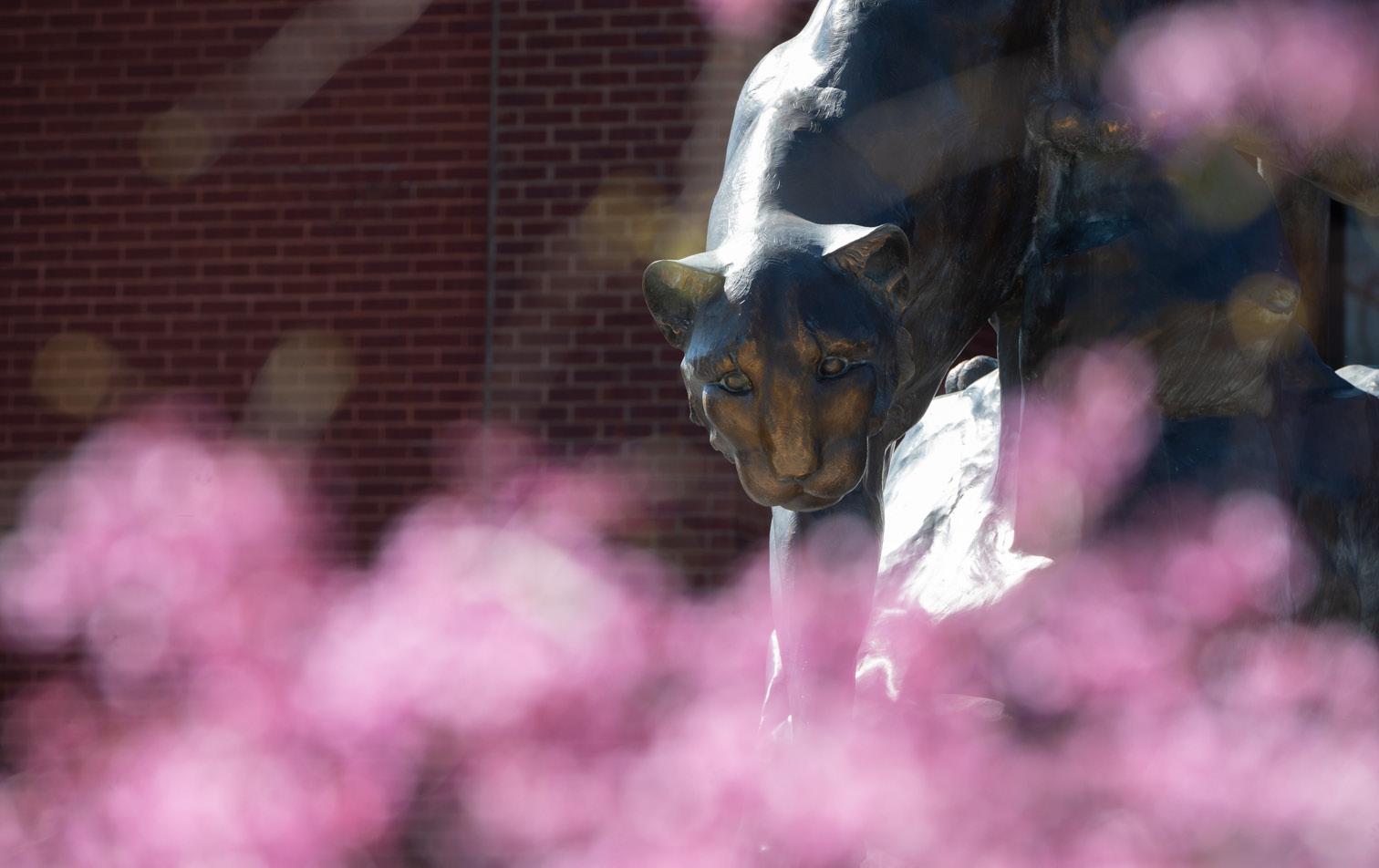
MORE THAN 1,170 FACULTY, STAFF AND ADMINISTRATORS
APPROXIMATELY 12,045 STUDENTS ANNUALLY $311,162,685 ANNUAL BUDGET (‘23)
SIUE, which serves the St. Louis metropolitan region, contributes significantly to the region’s economic activities and the Illinois economy. The table below represents SIUE’s expenditures, including research, hospital, construction, operation and maintenance of plants, purchases of supplies and services, and other spending. Also included within the all other expenditures category are expenses associated with grants and scholarships. Many students receive grants and scholarships that cover tuition and fees and pay stipends, and the university dispenses this financial aid to students, who spend it on living expenses. Some of this spending takes place in the state and is, therefore, an injection of new money into the state economy that would not have happened if the university did not exist. Operational expenditures in and out of the state from SIUE totaled over $309.62 million in fiscal year 2023 (FY23). The university purchases supplies and services, and many of its vendors are in Illinois. These expenditures create a ripple effect that generates more jobs and higher wages in the economy. Using the average spending by the university by geography, we created the in-state and out-of-state expenditure profiles for the university’s operations to estimate economic impacts in this report.

SIUE substantially impacted the region’s and the state’s economies while fulfilling its mission of developing human capital, growing ideas, and transmitting knowledge to the public. In 2023, close to $1.3 billion in economic impact came from the university’s operations, student expenditures, visitor spending, and alumni income, and the university’s economic activity helped support 12,178 jobs in Illinois.
SIUE’s economic impact reflects day-to-day economic activity on campus and also related activity off-campus, each with its own economic impact, as follows:
• SIUE’s general operation as a university creates an economic impact of $637 million and supports 6,977 jobs in Illinois and the St. Louis metropolitan area.
• Expenditures by SIUE students off-campus contribute to the economy, with an economic impact of $129,665,705, supporting 1,379 jobs.
• SIUE visitors’ off-campus spending is another significant economic stimulus, with an economic impact of $4,338,569 and 37 jobs supported.
• State of Illinois tax dollars contribute importantly to SIUE’s economic impact, and are associated with $144,368,570 of impact dollars.
• SIUE alumni working in Illinois leverage their college degrees to achieve higher incomes for themselves, supporting more business activity. Income gains from these alumni have an economic impact of $516,306,895.
Students and the State of Illinois invest in SIUE, and each receives significant benefits from that investment.
• SIUE alumni receive, on average, a strong return on investment in their university education. The cost of attending a university includes tuition, fees, other related expenses, and interest paid on student loans, all of which are direct costs. The overall cost also includes an indirect or opportunity cost of foregone income while attending university. For alumni completing all four years of a Bachelor’s degree at SIUE, the total economic cost or outlay (including foregone income while in school) is $160,000, and the reward to that outlay is $1.1 million of additional future income . In other words, each invested dollar creates a present value return of 3.32 dollars to the SIUE graduate who gets all their university education at SIUE, and students transferring to SIUE from a junior college also receive an excellent return on investment.
• Taxpayers provide significant funding for SIUE’s economic activity, and in return, that activity creates new tax income from related activities – including university operations, student spending, visitor spending, and future income gains from higher education for this year’s SIUE graduates, yielding tax revenues equal to $199,315,953 in present value terms, which exceeds the state tax dollars currently spent on SIUE -- equal to $58,491,000. In other words, the taxpayer’s return on investment in SIUE is $3.41 in tax revenue for each state dollar tax spent on SIUE.
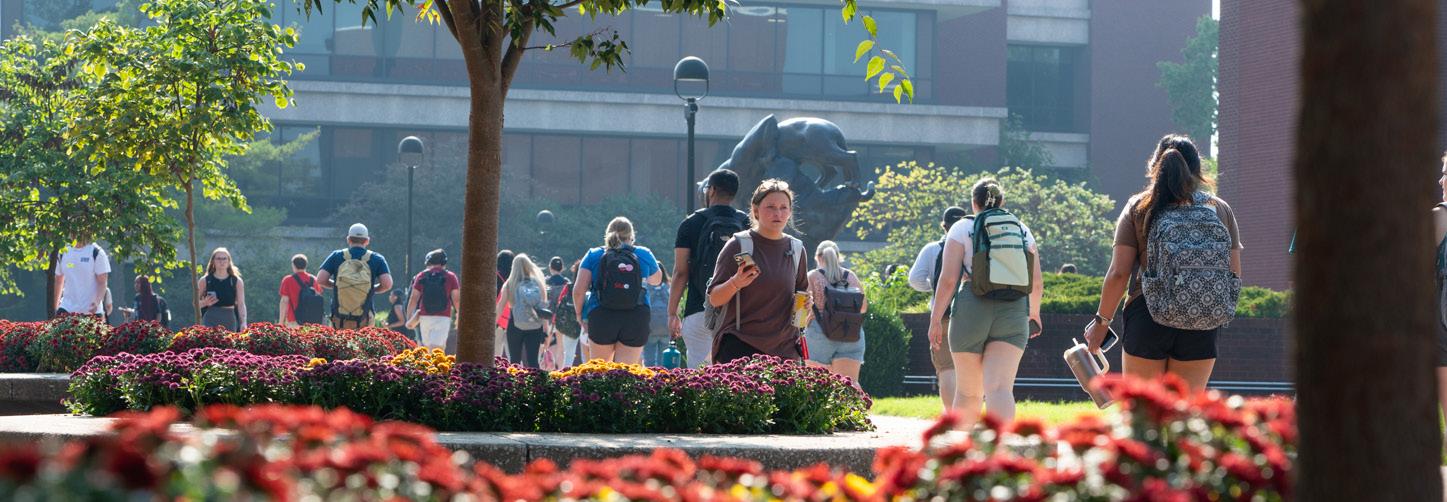
A significant portion of the university’s expenditures goes toward payroll for the faculty and staff employed by the institution. In FY23, payroll expenditures were nearly $160.63 million of the total annual spending. In-state payments to the faculty and staff amounted to $119.48 million, which took place in Illinois, and about $41.15 million was out of state. This annual payroll expenditure occurred within the St. Louis metropolitan area. Spending on operation and maintenance equaled $13.83 million of the total spending. Other spending, including construction spending, instruction, research, fellowship, and scholarships, amounted to $135.15 million in FY23.
SIUE has many functional units. We group the university’s spending by function and show the results below. Scholarships and fellowships comprised 16% or about $48.45 million of total expenses. Expenses on instruction comprised another 31% or $97.64 million; research spending totaled $9.12 million or 3% of operational expenditure. Public services, which include the typical cost of pensions and fringe benefits provided by the State of Illinois in the form of payments on behalf of the university, form about 5% or $16.85 million, respectively. All other expenditures, including academic, Instructional, and student support, constitute about 7%, 9%, and 7%, respectively.
SIUE OPERATIONAL EXPENSES, BY FUNCTION INSTRUCTION
$97,644,903 RESEARCH
$9,120,360 PUBLIC SERVICES
$16,851,671
ACADEMIC SUPPORT
$20,450,248 STUDENT SUPPORT
$20,750,698
INSTRUCTIONAL SUPPORT $33,279,882 OPERATIONS & MAINTENANCE
TOTAL OPERATIONAL EXPENSES $311,162,685
$64,614,377 SCHOLARSHIPS & FELLOWSHIPS $48,450,546
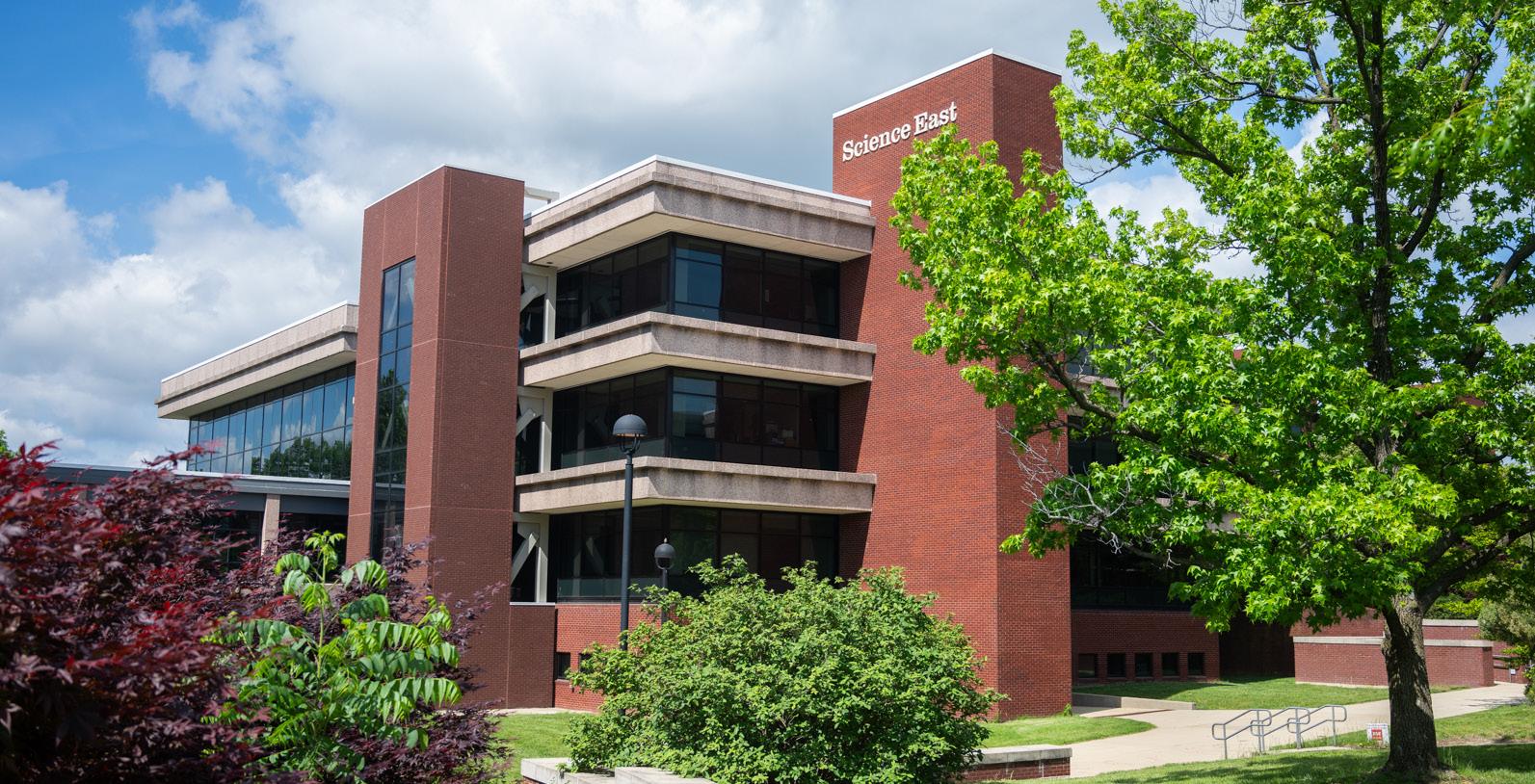
SIUE ECONOMIC IMPACT FROM UNIVERSITY OPERATIONS
SIUE operations and spending created economic activity within Illinois and the St. Louis metropolitan area through direct, indirect, and induced routes or channels. The table below shows the effects on the Illinois state economy, including increases in jobs, income, and total economic output.
$234,532,472
$27,513,114 $82,098,008
TOTAL SIUE ECONOMIC IMPACT FROM
UNIVERSITY OPERATIONS

6,977 JOBS
$309,348,533 $85,316,713 $242,151,391
$433,506,343 INCOME
$636,816,638 OUTPUT
*Direct economic impact
Impacts caused by SIUE spending on operations, payroll, capital, benefits, student spending and visitor spending.
Indirect economic impact: The increase in demand for services and goods that support SIUE, our students, visitors, faculty and staff.
Induced economic impact: Impacts created by household spending from SIUE employees, students and employees of supplies.
ECONOMIC IMPACT FROM SIUE STUDENT SPENDING OFF-CAMPUS
Spending by SIUE students off-campus generates significant economic impacts, as shown below. These impacts generate over 1,000 jobs, create nearly $60 million in income, and generate $130 million in total economic output, in addition to the impacts of SIUE’s operations.
TOTAL SIUE ECONOMIC IMPACT FROM STUDENT SPENDING OFF-CAMPUS
1,379 JOBS
$59,610,344 INCOME
$129,665,705 OUTPUT
ECONOMIC
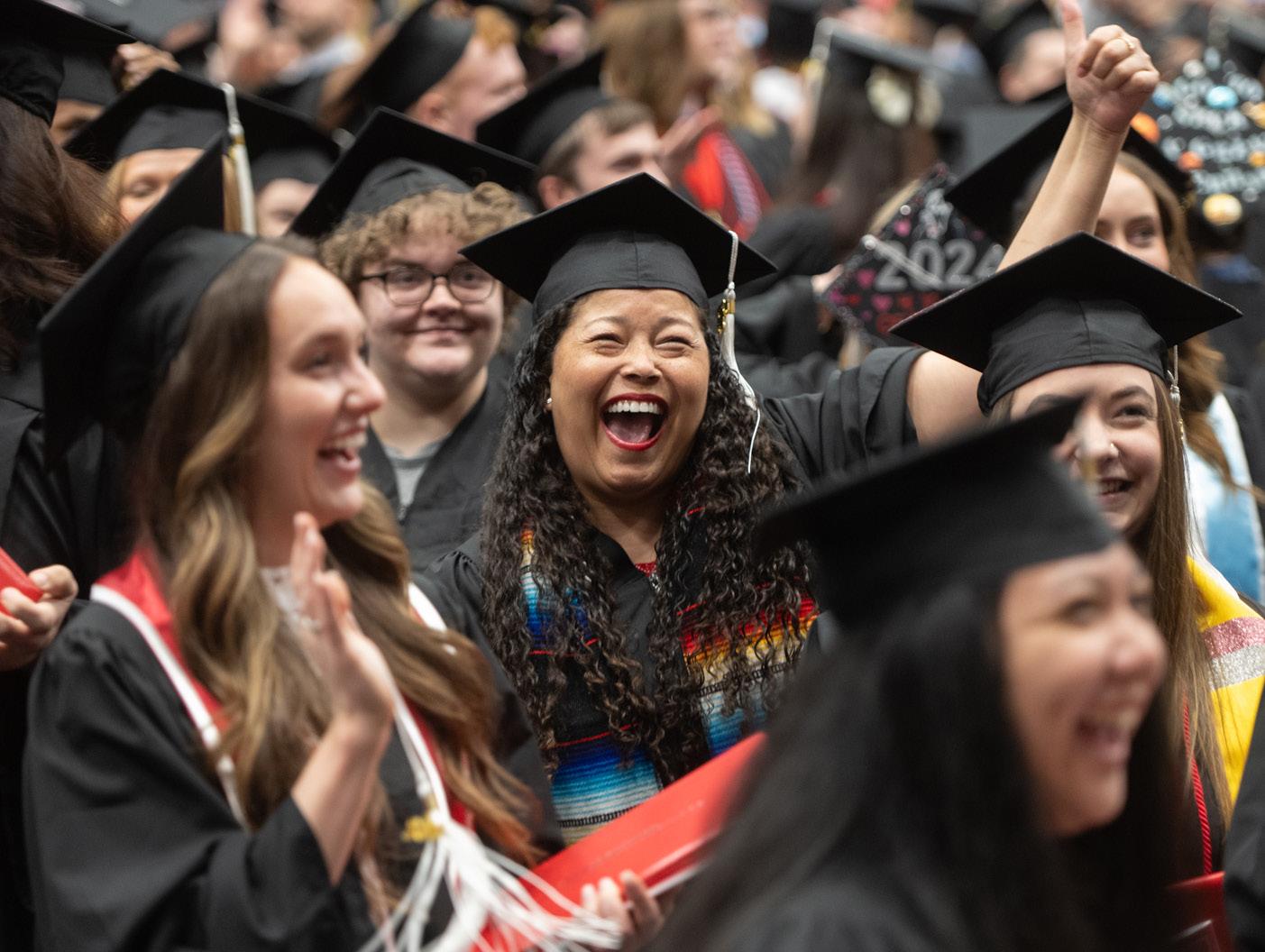
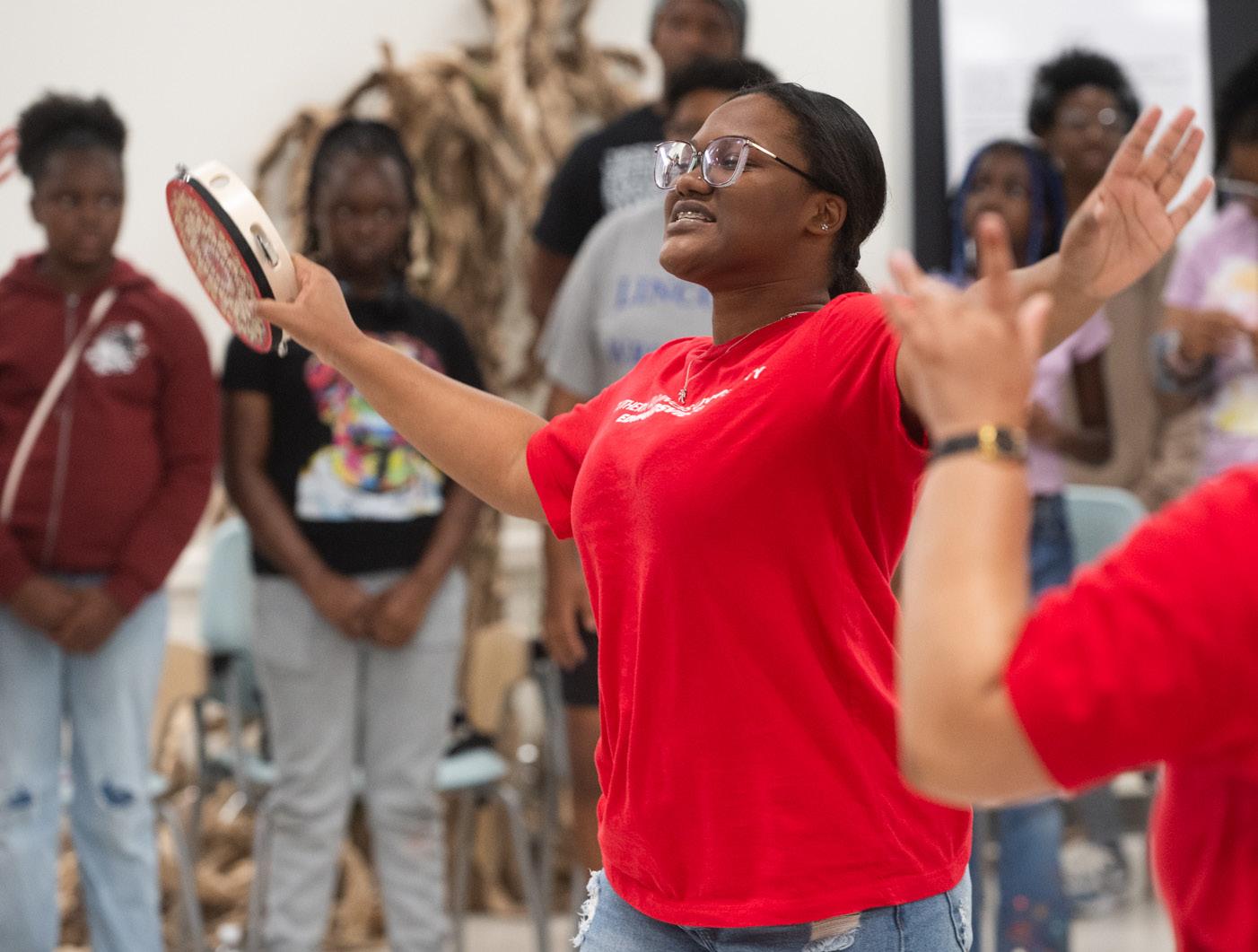
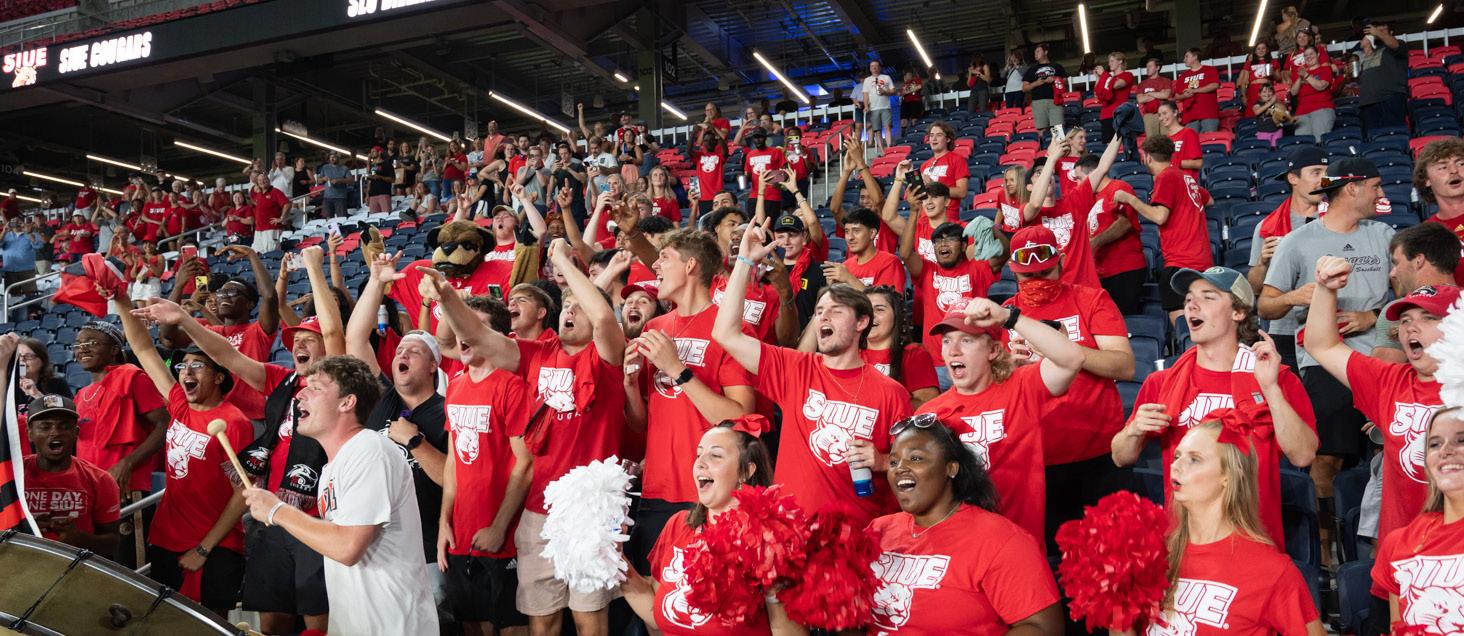
REVENUE FOR SELECT SIUE-HOSTED EVENTS
SIUE also attracts many visitors and below are a select list with estimated revenues.
THEATER AND ARTS
ATHLETICS
ALUMNI IMPACT
Students who attend SIUE, complete their education, and pursue a career have improved human capital and opportunities to earn more income. With 56,890 SIUE alumni living in Illinois, and assuming that the alumni participate in the labor force at a rate that declines linearly toward zero over 40 years, the present value of the alumni’s increased incomes due to SIUE education is $516,306,895.
SIUE’S TOTAL ECONOMIC IMPACT
Combining the economic impacts of university operations, student off-campus spending, visitor spending, and alumni incomes.
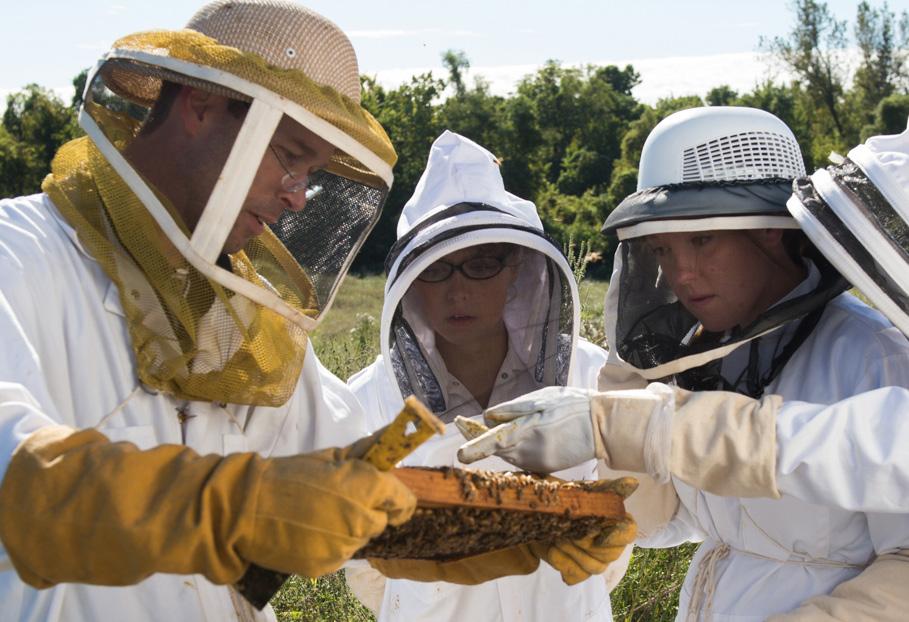

SIUE’s points of pride and public impacts are not measured in dollars but have human, research, social and workforce value.
• Southern Illinois University Edwardsville has achieved INSIGHT Into Diversity’s Higher Education Excellence in Diversity Award for the 10th consecutive year in 2023. The HEED Award is the only national honor recognizing U.S. colleges and universities that demonstrate an outstanding commitment to diversity and inclusion across their campus.
• SIUE’s values of inclusion, civic engagement, integrity, excellence and wisdom have served as the backbone for its work to operationalize inclusive excellence. Inclusive Excellence is an active process through which colleges and universities intentionally integrate diversity, inclusion and equity into their educational quality efforts, missions, and infrastructure. Inclusive excellence is the framework and change model SIUE has adopted to develop and implement systemic actions to facilitate the upbuilding of an equity-minded and centered campus culture. The four components of SIUE’s inclusive excellence framework are as follows:
• Access and Success (Students, Faculty and Staff): Attentiveness to the demographic diversity of the University and ensuring equitable opportunities for all faculty, staff, and students to succeed.
• Campus Climate: Commitment to creating a campus community where all are embraced, honored, and valued.
• Diversity Learning and Education: The intentional incorporation of diversity into the curriculum and active engagement with diversity for fostering student learning and development; and support for faculty, staff, and administrators in acquiring knowledge and developing skills needed to approach their work with cultural competence, cultural humility, and an equity mindset.
• Community Engagement: Considers the role of the University in addressing systemic inequality and improving outcomes for underserved populations in surrounding communities.
• In June 2023, the Illinois Small Business Development Center (SBDC) and International Trade Center (ITC) at SIUE received the “E” award for export service at the 62nd anniversary of the award ceremony at the U.S. Department of Commerce.
• The award is the highest recognition a person or U.S. entity can receive for making a significant contribution to the expansion of U.S. exports. A total of 24 U.S. companies and organizations from 14 states were presented with the President’s “E” and “E Star” Awards. The Illinois SBDC ITC was one of four organizations that won the “E” award for export service and the only one located at a university.


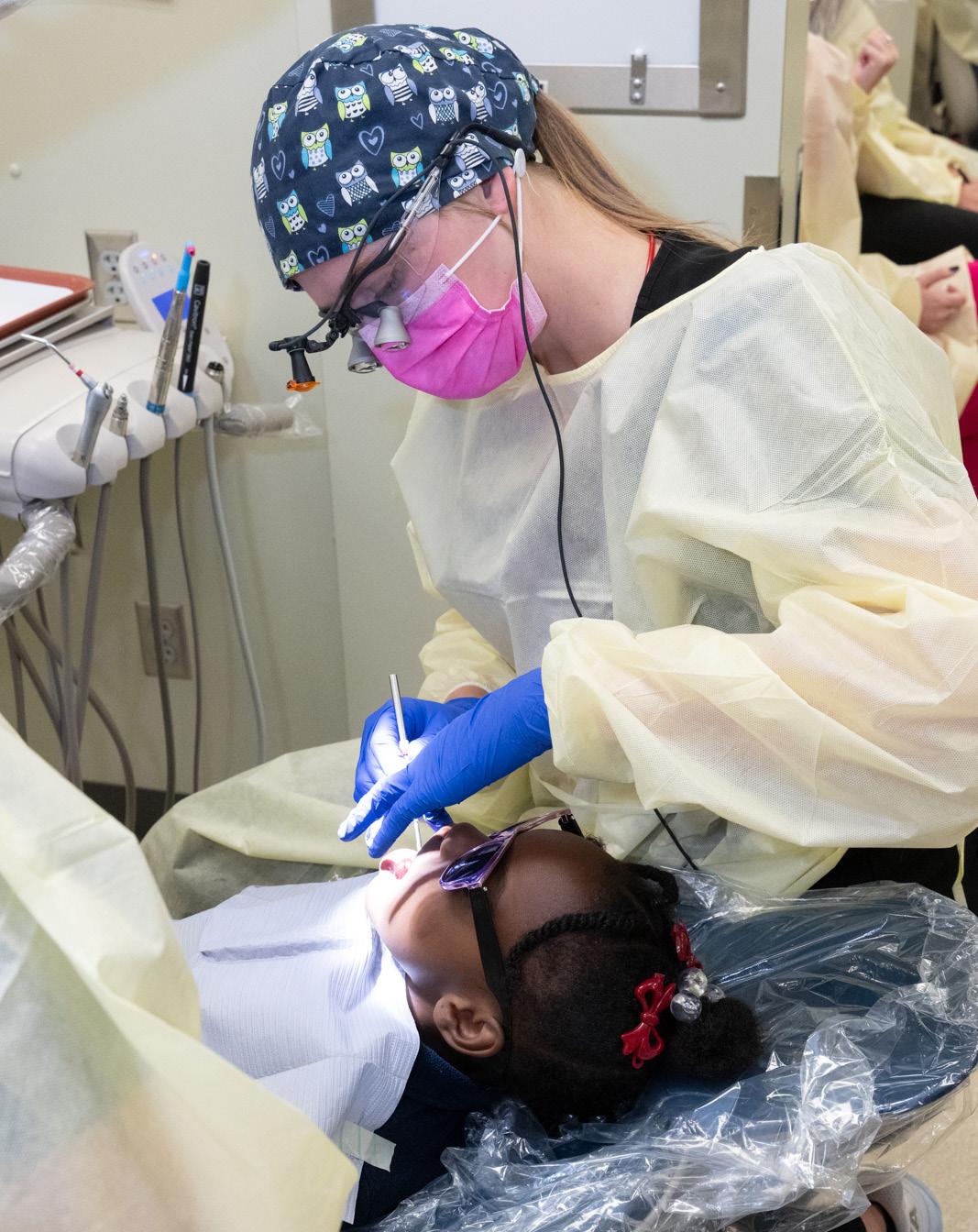

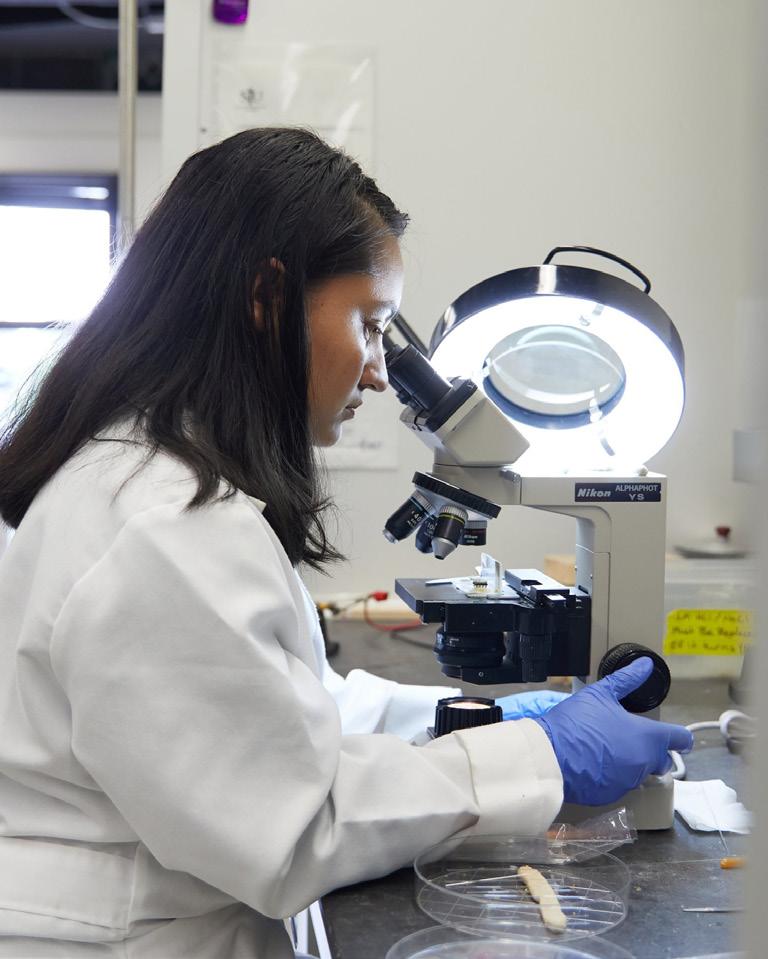
SIUE’s Research Centers are engaged in innovative, collaborative projects on and off campus. They provide educational offerings and opportunities to collaborate with our faculty and students on customized projects.
In FY23, faculty and staff were awarded $32.8 million in grants and contracts for research, teaching and service initiatives from various federal funding agencies.
This university-wide research center serves both the SIUE community and external partners by using and developing state-of-the-art data analysis, machine learning, and data visualization techniques to mine complex data for meaningful insights and real-world applications. This computational technology center is primarily focused on “Big Data.” In addition to supporting the analytical needs of our faculty researchers and industry partners, the Center offers educational and training opportunities in data analytics and machine learning to SIUE students and the regional workforce, supports student retention and intervention strategies at the campus level, and promotes the ethical use of data analytics and machine learning through workshops, seminars, and conferences.
The SIUE Center for STEM Research, Education and Outreach is a collaborative enterprise among several SIUE academic units, local community colleges and school districts, regional offices of education, and the community at large. The Center’s mission is to develop, strengthen, and promote STEM research, education, and outreach in the region.
GeoMARC is a research center that is focused on the use of advanced technologies in Geographic Information Systems (GIS), remote sensing, digital image processing, geospatial automation, and machine learning to help solve a wide range of issues within government, private, institutional, and local communities. The center aims to foster cross disciplinary and multi-institutional partnerships to develop and promote geospatial technologies to conduct, lead, and influence research and innovation. In addition to research, GeoMARC actively provides community and intra-university educational outreach to advance spatial thinking and the evolving uses of geospatial technologies.
The IRIS Center at SIUE is an interdisciplinary facility designed to support individual and collaborative scholarship that applies digital content as a primary methodology. The center’s mission is to facilitate cross-disciplinary projects that involve innovative uses of technology in the humanities and social sciences, support these projects with facilities, equipment, and human resources, foster active collaboration between faculty and students, encourage the development of curricular innovation that makes use of digital applications, and promote digital endeavors that intersect with community initiatives.
The National Corn-to-Ethanol Research Center (NCERC) is a nationally recognized research center dedicated to developing and commercializing biofuels, specialty chemicals, and other renewable compounds. The NCERC’s fully functional dry grind pilot plant and laboratories have advanced biofuel capabilities, including corn fractionation, pretreatment, and a fermentation suite with 5, 30, 150, and 1500L scale-up. Industry veterans staff facilities with more than 100 years of collective experience in fermentation and biofuel production. This knowledgeable team has the flexibility and expertise to design and carry out projects in any region of the advanced biofuels or specialty chemicals space.
The Center for Crime Sciences and Violence Prevention (CCSVP) contributes to the region’s crime/violence reduction efforts. CCSVP promotes and develops partnerships with violence prevention/reduction and works with stakeholders to assist in product/program development and evaluation of crime/violence prevention efforts. CCSVP assists in improving the accountability and transparency of all stakeholders in the criminal justice process and serves as a regional clearinghouse for granular criminal justice data, improving access to data across agencies, researchers, and the public.
• School of Dental Medicine students manage approximately 35,000 patient visits each year at patient clinics in Alton and East St. Louis. In addition, students offer oral health treatment, screenings, and education to more than 13,000 people annually through a wide variety of community outreach events.
• The SIUE East St. Louis Center received more than $14 million in grant awards and applied those funds toward comprehensive programs, services, and training for children and families in the community. A vital educational resource and a supportive neighbor to the Metro East Community, the Center empowers individuals and families to lead successful and healthy lives.
• The SIUE STEM Center for Research, Education and Outreach loans science materials to teachers and offers camps and activities for area K-12 students and educators. The Center has forged vital partnerships to expand community outreach efforts, including those with the United States Transportation Command and Boeing Company.
• The University Park at SIUE supports business innovation and economic development in the community via a 330-acre technology park on campus and its partnerships with crucial regional economic development engines: the Leadership Council Southwestern Illinois and the Ed/Glen Chamber. SIUE also supports the Illinois Small Business Development Center (SBDC) for Metro East St. Louis, providing business innovation and economic development opportunities in East St. Louis and beyond.

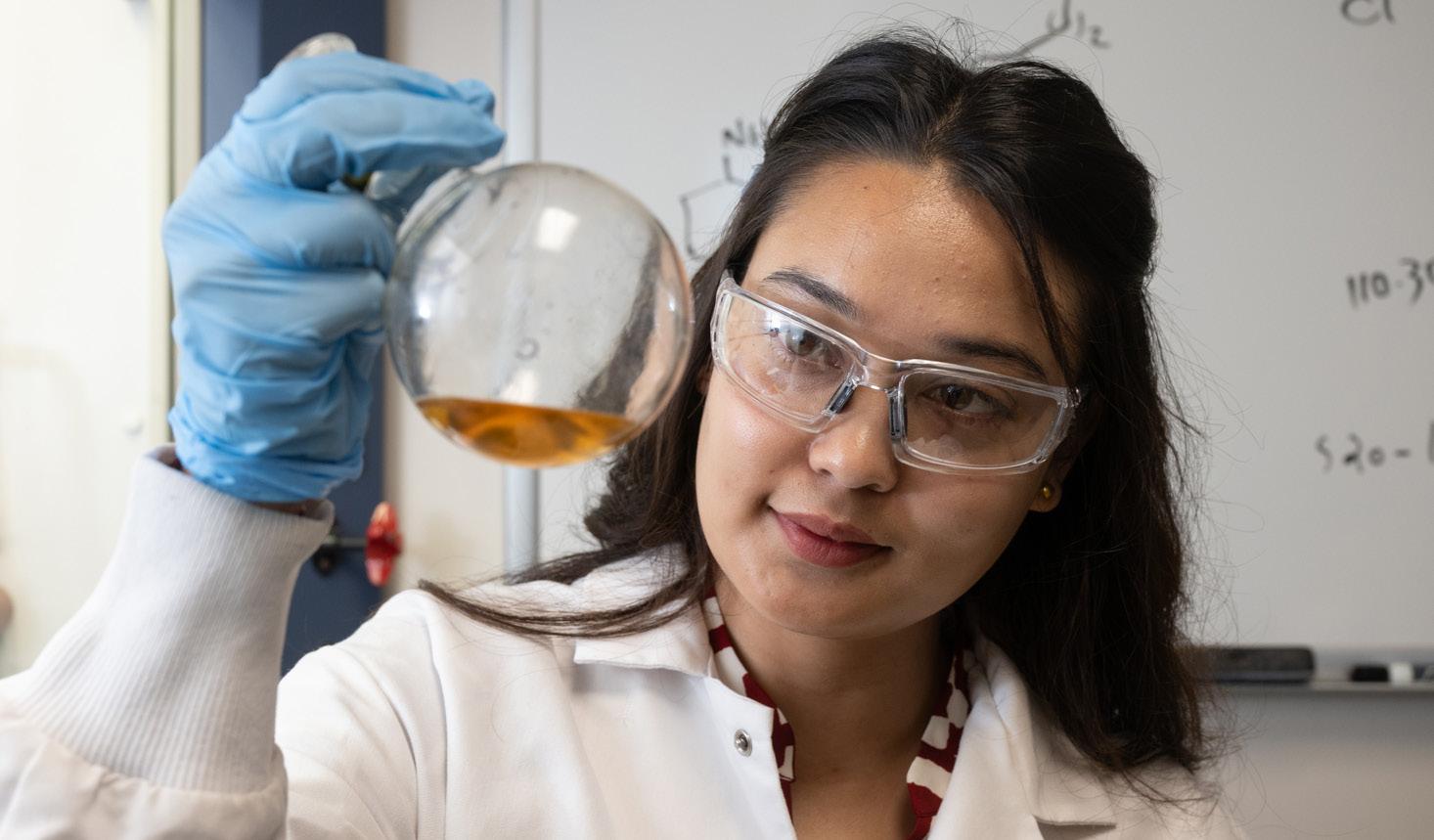

• The Center for Sustainable Communities and Entrepreneurship at SIUE is our Illinois Innovation Network hub and provides a framework to leverage the university’s strengths in support of economic and workforce development, sustainability, equity-minded engagement, and community impact.
• The Workforce Education Exchange (WEX) facilitates partnerships and collaboration across educational institutions including community colleges, workforce, and employer/industry training programs to foster workforce development and ensure the local talent pool has access to the education, training, and competencies needed to succeed. WEX is a joint venture between the Illinois Innovation Network, the University of Illinois and other institutions.
• The Partners for Opportunities in Workforce Development (PROWD) project is designed to reduce recidivism rates through training, employment, and supportive services to individuals incarcerated in federal, minimum-security prisons, during their transition to Returning Residential Centers, and upon release to the community.
• The Gateway Apprenticeship Hub consists of six local workforce investment areas across the bistate region and aims to create 750 new registered apprenticeship placements in in-demand occupations within the healthcare, bioscience, and education industries. At SIUE, faculty and staff develop and implement pre-apprenticeship training programs for chemical and lab technicians, as well as providing apprenticeship pathways with local school districts for undergraduates pursuing a degree in education. Employer partners such as MilliporeSigma, Thermo-Fisher Scientific, Pfizer, Tyson, BJC, SSM, and HSHS have been strong collaborators on the Gateway Hub project, creating new Registered Apprenticeship Programs and emphasizing their commitment to hiring a diverse, inclusive workforce.
• SIUE is also working with regional education, government, and community partners to address a critical shortage of forensic scientists, advance criminal justice research, and support reform through the launch of the new Southwestern Illinois Justice and Workforce Development Campus at the former Lindenwood-Belleville campus. SIUE’s efforts support collaboration among partners and builds capacity for developing professionals to serve in various roles within criminal justice, define pressing applied criminal justice research needs, expand community engagement opportunities, and contribute to workforce development throughout the region and state. As part of a holistic perspective, SIUE is also engaged in supporting community justice and racial equity work in the region.
According to Washington Monthly, SIUE is “2023 Best Bang for the Buck” among Midwest institutions. Among Illinois public institutions, SIUE ranks 4th on Forbes magazine’s list of America’s Top Colleges based on return on investment, including success after graduation, student debt and student satisfaction.
• SIUE received national recognition via the 2023 Military Times’ Best for Vets: Colleges ranking.
• SIUE and the city of Edwardsville have consistently been rated highly for their safe environments by a variety of organizations, including the National Council for Home Safety and Security and YourLocalSecurity.
• SIUE received the Higher Education Excellence in Diversity (HEED) award from INSIGHT Into Diversity magazine for 10 consecutive years. This is the only national honor recognizing U.S. colleges and universities that demonstrate an outstanding commitment to diversity and inclusion across their campus.
• SIUE has been named a Bicycle Friendly University in the bronze category by the League of American Bicyclists. The designation is based on equity, engineering, education, encouragement, and evaluation and planning.
• SIUE is one of three higher education institutions in the nation to be designated a Living Architecture Regional Center of Excellence by Green Roofs for Healthy Cities and the Green Infrastructure Foundation.
• The U.S. Environmental Protection Agency (EPA) ranks SIUE number one in Illinois and 22nd in the nation in green power usage. The EPA’s Green Power Partnership program has named the top 30 colleges and universities representing the largest green power users among higher education institutions within the partnership. SIUE ranks first in the state and 22nd nationally. SIUE is one of only two Illinois schools that made the top 30.
• SIUE is recognized as a STARS Silver Institution for accomplishments in campus sustainability. The rating is based on the Sustainability Tracking, Assessment and Rating System for campus-wide sustainable practices from the Association for the Advancement of Sustainability in Higher Education.
All new campus construction is Leadership in Energy and Environmental Design (LEED®) certifiable by the U.S. Green Building Council.
• LEED Gold: Art & Design West building
• LEED Silver: Science Building East, Science Building West, Lukas Athletics Annex, Engineering Building Addition and the Multidisciplinary Dental Medicine Laboratory
• LEED Silver Residential: Cougar Village
• Pending Certification: Fowler Student Design Center, Founders Hall and School of Dental Medicine Advanced Care Clinic
• SIUE has installed a 120-foot wind turbine and 140 solar panels; and maintains more than 17,500-square-feet of green roof space.


• The 35-acre Gardens at SIUE and the 380-acre Nature Preserve are places where students and faculty take part in valuable research, lab projects and class assignments.
• The NCERC at SIUE is a nationally recognized research center dedicated to the development and commercialization of biofuels, specialty chemicals and other renewable compounds.
• SIUE is fully certified at the Division I level by the NCAA and is a member of the Ohio Valley Conference (OVC) and the Mid-American Conference (MAC) as a affiliate member in wrestling.
• SIUE currently is ranked 1st among Illinois state universities and 13th in the nation among public universities graduating student-athletes, according to a report released by the NCAA.
• Fall 2022 marked the 33rd consecutive semester all student-athletes have earned a cumulative 3.0 or higher GPA.
• The University Park at SIUE supports business innovation and economic development in the community via a 330-acre technology park on campus and its partnerships with crucial regional economic development engines: the Leadership Council Southwestern Illinois and the Ed/Glen Chamber. SIUE also supports the Illinois Small Business Development Center (SBDC) for Metro East St. Louis, providing business innovation and economic development opportunities in East St. Louis and beyond.

This report was prepared for the Office of the President, Southern Illinois University System, by a research team of SIU faculty (including Jebaraj Asirvatham, Ph.D. in Agricultural and Applied Economics, and Scott Gilbert, Ph.D. in Economics) with the help of Economics graduate assistants (including Stephen Troveh and Haya Akram Khan). For questions, please get in touch with the study authors at jebaraj@siu.edu or gilberts@siu.edu.

Jebaraj Asirvatham, Ph.D.
Jebaraj Asirvatham, SIU Carbondale Associate Professor of Agribusiness Economics
Jeb is an applied economist and works in multiple research areas, including agricultural marketing, agricultural finance, economic development, and nutrition and health economics. He is an associate professor of agribusiness economics at SIU Carbondale. Jeb’s research work includes estimating regional premiums of specialty crops, exchange rate and agricultural trade, microfinance and business income, sustainable attitudes and behaviors among college students, women empowerment in developing nations, food environment in schools, peer-effects in health among school children and the impacts of campaign and education policies. In his research work, he uses science-based evidence to model economic relationships. In a book chapter, he developed mathematical models based on neuroscientific findings to explain dietary behaviors.
His MS thesis and one paper from this dissertation received international awards. He teaches Financial Management in Agriculture and Marketing and Pricing of Agriculture Products covering topics, such as investment analysis or capital budgeting, financial management, and marketing principles.

Scott Gilbert, Ph.D.
Scott Gilbert, SIUC Associate Professor of Economics
Scott received his bachelor’s degree from the University of California Berkeley. He completed his coursework there to go to medical school but found economics so interesting that he instead went to work as a research associate in the research department of the Federal Reserve Bank of San Francisco. After working there two years, he completed his Ph.D. in economics at the University of California San Diego. After graduating in 1996, he worked as an assistant professor in economics at the University of Mississippi for three years, then joined SIU Carbondale in year 1999.
Gilbert teaches a variety of courses including econometrics, financial economics and monetary economics. He received the economics faculty teaching award in 2006 and is the faculty mentor for SIU’s Economics Club and Blockchain Economics Club. He serves as the economics program coordinator and the undergraduate program director for economics. His areas of published research include econometrics, statistics, finance, and cryptocurrencies.
Thanks to the following SIUE leaders who also contributed to this report.
Phil Brown
Former Director, Institutional Research & Studies, SIUE
Gireesh V. Gupchup
Vice President, Academic Innovation, Planning & Partnerships, SIU System
John Horvat, M.B.A
Associate Provost, Finance & Administration, SIU Medicine
Christine (Chris) Leopold, B.A.
Former Director, Enrollment Management, SIUE
Lynn Andersen Lindberg, M.B.A.
Executive Director, Office of Innovation & Economic Development, SIUC
Warren D. Richards, M.S.
Instructor & Former Associate Director, Office of Regional Economic Analysis, SIUE
Timothy S. Sullivan, Ph.D.
Instructor & Former Director, Office of Regional Economic Analysis, SIUE

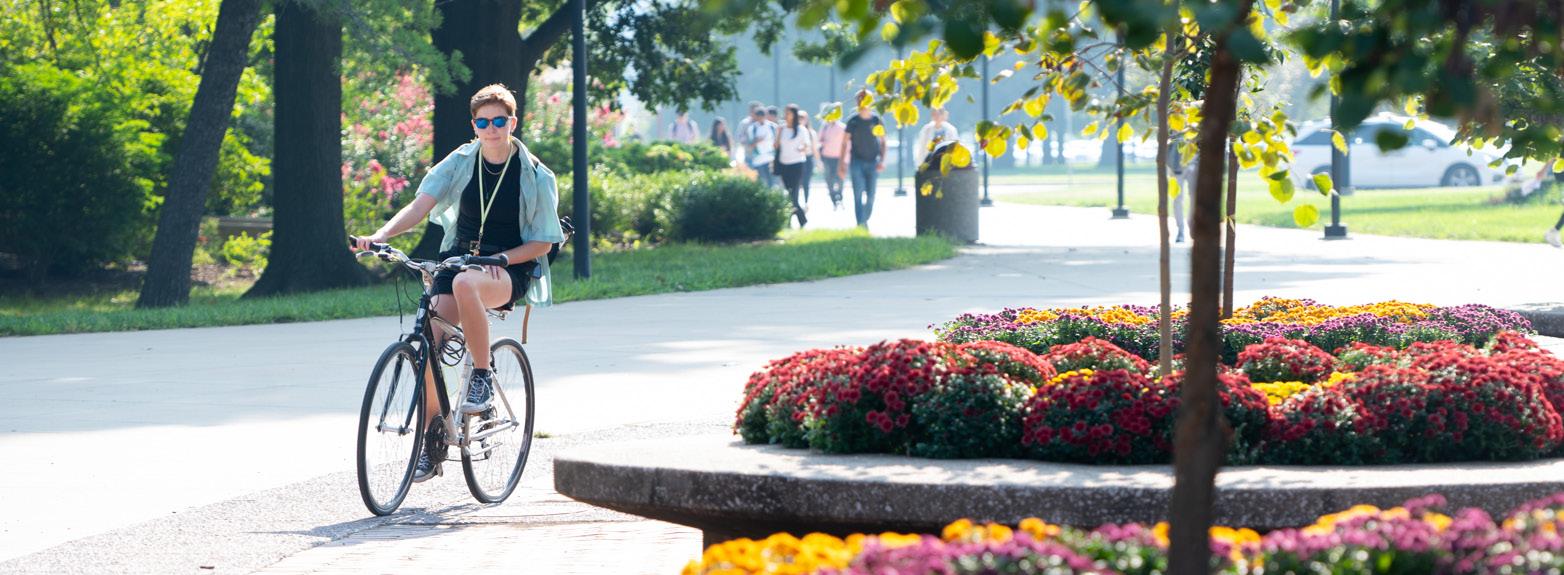

Southern Illinois University Edwardsville is part of the SIU System, which is one of the most powerful economic engines in the southern half of the state. The SIU System employs more than 7,000 faculty, staff and administrators who serve approximately 23,500 students through campuses in Carbondale, Edwardsville and Springfield. The SIU System Office and SIU Medical School are in Springfield, Illinois as well as SIU Medicine clinics that serve thousands of patients.
SIU’s economic impact extends far beyond our campus, creating a ripple effect that benefits the surrounding region, nation and the world. The system’s operations, construction, capital projects and research directly affect the state economy, while student spending, visitor spending, and alumni activities support the region’s industry. SIU graduates have a positive influence across the globe in a variety of professions.
The SIU System’s economic impact in fiscal year 2023 was an astounding $4 billion, and the system’s economic activity helped support 45,075 jobs in Illinois. We are proud that SIU’s impact has grown tremendously in our 155-year existence; we know this trend will continue with so many outstanding students, innovative faculty and staff members.